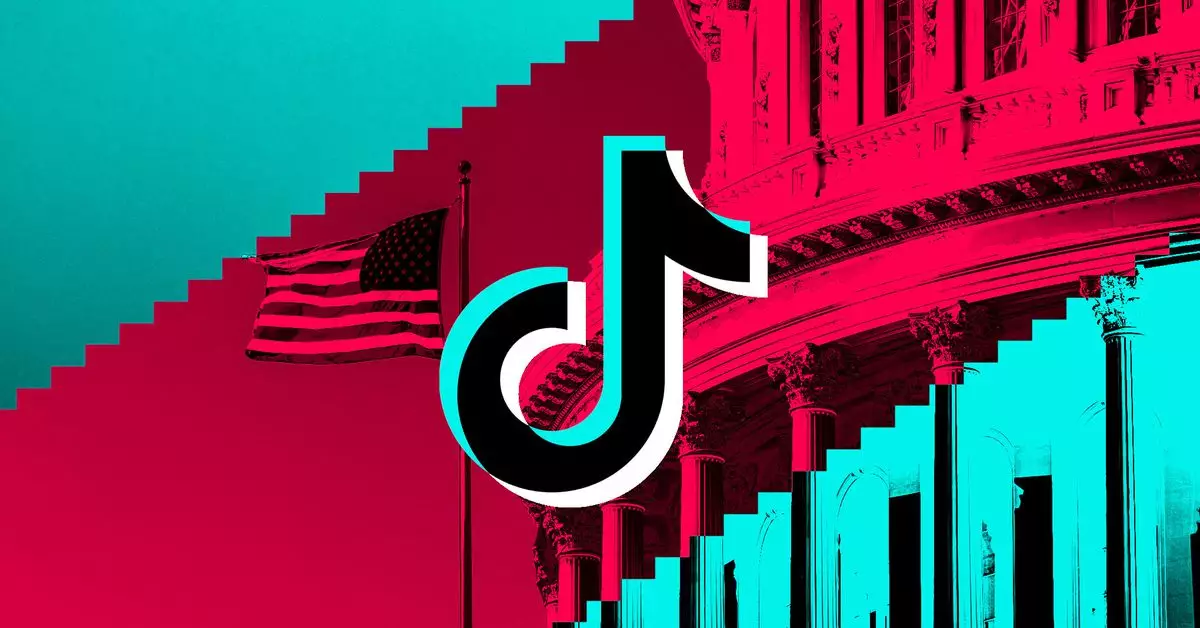The tumultuous saga surrounding TikTok in the United States has taken another twist with former President Donald Trump’s recent executive order. As he begins his term in a complex political landscape, Trump’s directive grants a brief reprieve to TikTok by asking the Department of Justice to hold off on enforcing a rule that may force the app to sever its ties with its Chinese parent company, ByteDance. This decision does not exist in a vacuum; it is laden with legal implications, potential ramifications for American companies, and questions about the overarching regulatory landscape.
Trump’s decision effectively circumvents a bipartisan law known as The Protecting Americans from Foreign Adversary Controlled Applications Act, which mandates that ByteDance must divest its interests in TikTok. The act was formulated as part of national security measures aimed at mitigating the potential risks posed by foreign-owned applications, particularly those that collect vast amounts of personal data. Trump’s executive order, however, proposes a 75-day delay on enforcement, thereby extending a crucial deadline. By doing so, he seeks to create an avenue for an orderly resolution that could allow American tech giants like Apple and Google to continue their business relationships with TikTok without the looming threat of severe financial penalties.
But here lies the contradiction: while the order intends to create a buffer, it does nothing to alter the legality of the original law. The Attorney General is instructed to issue communications declaring there have been no violations regarding TikTok’s operations, yet these assurances are likely to ring hollow in the eyes of legal experts and corporate counsel. The underlying principle of the law remains intact, and the risks associated with noncompliance are substantial.
TikTok’s precarious position is further complicated by the significant financial implications of continued operations under its current ownership structure. As discussions about potential penalties reach dizzying heights—up to approximately $850 billion—companies are left in a state of indecision. Even with Trump’s reassurances, it’s difficult to imagine American companies willingly exposing themselves to such a massive liability, particularly when the consequences could extend up to five years after potential violations.
Moreover, TikTok’s recent brief outage and its subsequent removal from major app stores serve as a testament to the volatile nature of its operational status. Although the app came back online quickly, its removal from platforms raises questions about the platform’s sustainability in light of changing regulations and potential enforcement actions.
The executive order posits a new layer of complexity in a scenario already infused with legal ambiguity. While the law permits a 90-day extension contingent upon ByteDance proposing a sale to a “non-foreign adversary” entity, there has been no formal announcement of such a sale. Trump’s current maneuver does not adhere strictly to these parameters; rather, he appears to be adopting an approach that aims to override existing statutes without a clear legal pathway to do so.
On another note, Trump’s comments on a suggested joint venture between the U.S. government and TikTok prompts skepticism. The details remain elusive, with little evidence to support the feasibility of the proposal. This leaves many questions unanswered regarding how ownership dynamics would work and what it means for TikTok’s operational framework.
In an environment where public confidence in institutions is already waning, the unfolding drama around TikTok further taints perceptions of governance. The former president’s actions seem to flounder in a grey area where legality, national security, corporate interest, and digital sovereignty collide. For many, the notion that the executive branch could distort legal boundaries for political expediency raises alarms about the sanctity of American laws.
As this situation evolves, it is clear that the outcome will hinge on both legal proceedings and public sentiment. The collision of national interest and corporate strategy will dictate TikTok’s future in the U.S. and will test the tenuous balance that the Biden administration must maintain in reconciling bipartisan concerns and the essential interests of American businesses. The narrative continues to unfurl, accompanied by a cacophony of legal battles, corporate negotiations, and political rhetoric, marking TikTok as a focal point in the ongoing dialogue about tech regulation and digital privacy in the modern age.

